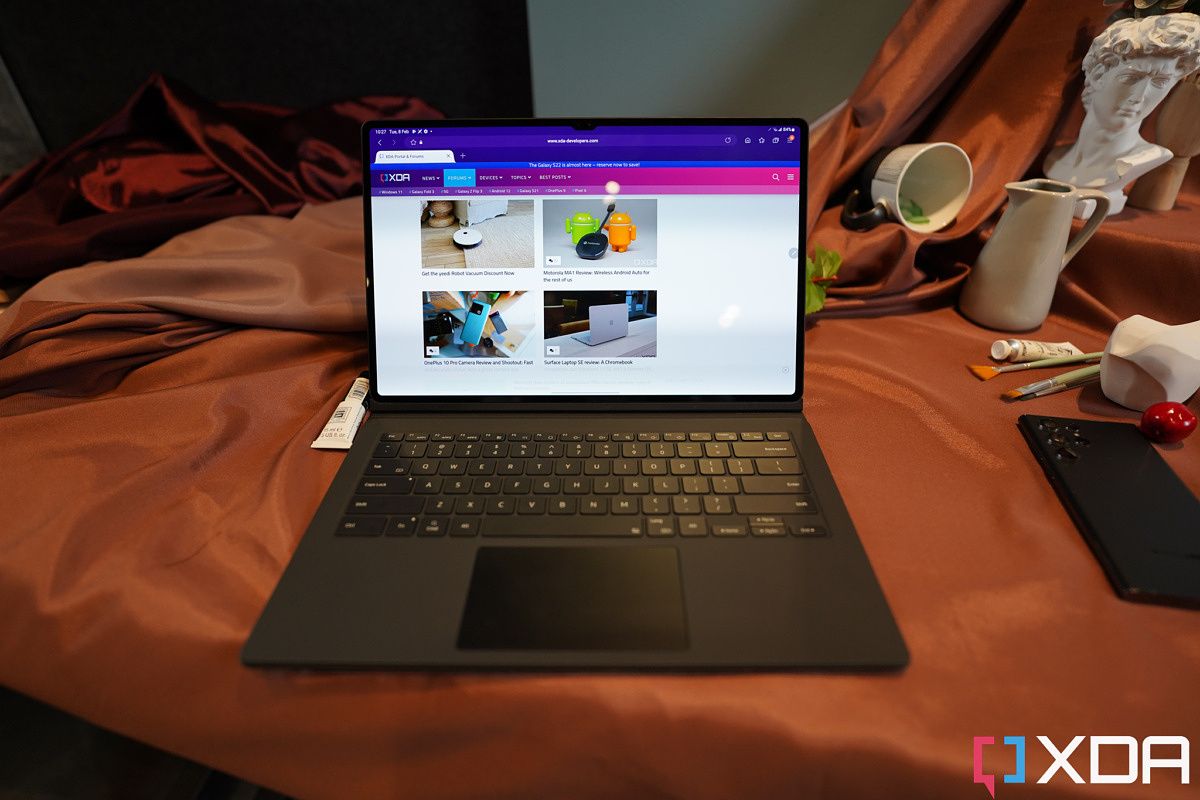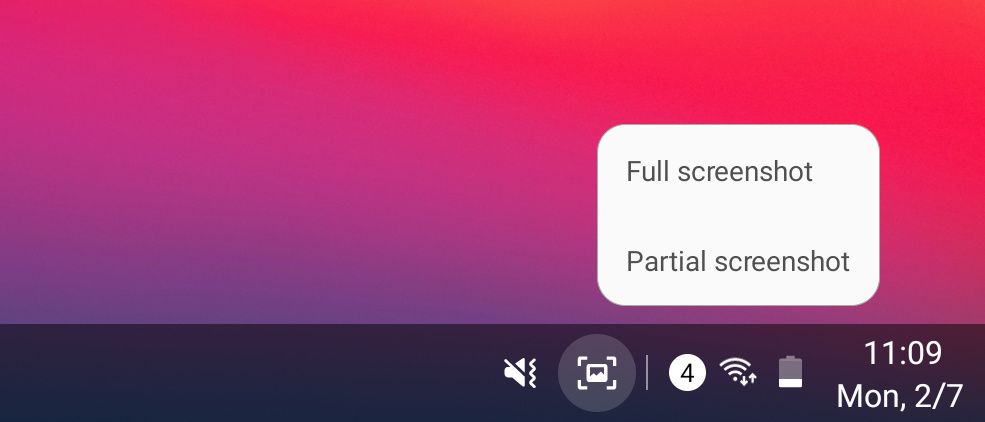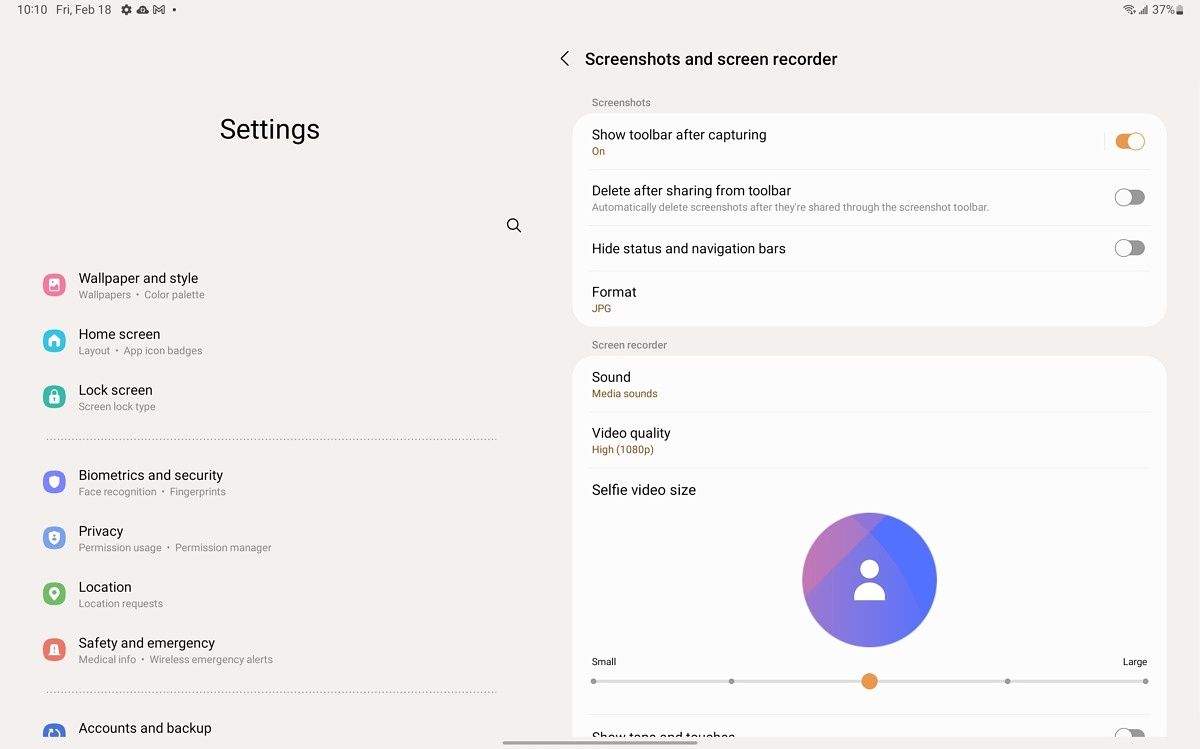Samsung's latest series of flagship tablets has finally arrived, as the long-awaited Galaxy Tab S8 series. The Galaxy Tab S8 Ultra is the most impressive of the bunch, but there are two other models this year, matching the lineup of Samsung's Galaxy S phones. The Tab S8 Plus is one peg down the ladder, and then there's the regular Galaxy Tab S8.
If you're still on the fence about Samsung's latest tablets, check out our best Galaxy Tab S8 deals roundup for the lowest prices we can find from retailers. However, if you already have one and want to know everything about taking screenshots and screen recordings, you've come to the right place. There's nothing too surprising here if you've used a Samsung-made phone or tablet recently, as the general options and steps are the same as other One UI devices. However, there are a few helpful features and settings you might not know about, which we'll go over here.
How to take a screenshot on the Galaxy Tab S8 series
This part is easy: just like most other Android devices, press the power and volume down buttons at the same time to take a screenshot. That key combination will capture a screenshot (you should see a shutter-like animation) and save it to your local storage. Easy peasy.
However, there are a few other ways to take a screenshot on the Galaxy Tab S8 series, which can be helpful at times when pressing those keys might be inconvenient (like in landscape orientation). If you have Google Assistant set up, you can say "Ok Google, take a screenshot." The same also works for Samsung's own Bixby voice assistant: just say "Hey Bixby, take a screenshot."
You can also take a screenshot with the S Pen. Take the S Pen off your Galaxy Tab S8, then tap the air command menu (the floating button with a stylus icon). Once you press "Smart select," you can drag your stylus across the screen to select an area, which can then be saved as a screenshot. This is definitely the fastest method if you only want a specific area of the screen, which would require opening the image later in a photos app with other methods.
The Galaxy Tab S8 series also has a Samsung DeX mode, which switches the tablet into a multi-window view with a bottom taskbar, similar to how Windows looks and feels. If you're in DeX mode, all the normal ways of capturing a screenshot should still work, but there's also a dedicated screenshot button on the right side of the taskbar. Pressing that button will instantly capture a screenshot of your DeX desktop, or you can hold down (or right click) the button to see the option to capture a partial screenshot.
When you capture a screenshot through most of these methods, a toolbar appears at the bottom of the screen with a few additional options. The button with the bottom-facing arrows allows you to scroll to capture a taller screenshot, the share button gives you one-tap sharing to any app that can import images, and the hashtag button allows you to add tags for organization. There's also a crop button, so if you need to cut some part of the screenshot off, you don't have to go find your photo app and open the image from there.
How to screenrecord on the Galaxy Tab S8 series
There are fewer ways to start a new screen recording on the Galaxy Tab S8. Your first option is to tap the 'Screen recorder' tile in the quick settings menu, in the same area your Wi-Fi and Bluetooth toggles are located. It might be hidden by default on your device — if so, press the three-dot icon at the top-right of the settings panel, tap 'Edit buttons,' and drag the 'Screen recorder' into the available buttons. The other method is with the Bixby voice assistant, if you have that enabled — just say "Hey Bixby, start a screen recording."
No matter which way you start the process, the Galaxy Tab S8 will ask if you want to record with no sound, media sounds (e.g. the audio coming from apps and games on your Galaxy Tab S8), or your microphone and media sounds. Then you just tap 'Start recording'.
Change screenshot/screenrecord settings on the Galaxy Tab S8 series
Samsung has some settings related to screenshots and screen recordings, located under 'Screenshots and screen recorder' in the Advanced features section of the Settings application. Here you can turn the popup toolbar on or off, automatically delete shared screenshots, and change which format screenshots are saved as (PNG or JPG). There's also an option to hide the status and navigation bars in your screenshots, which is handy if you want a clean-looking image without clearing all your notifications.
For screen recordings, you can change the default preference for sound input, the quality setting for the video file, and the size of your selfie camera when that feature is enabled. Most of the important options are in the initial popup when you start a screen recording, so there's not much left to mess with in the system settings.
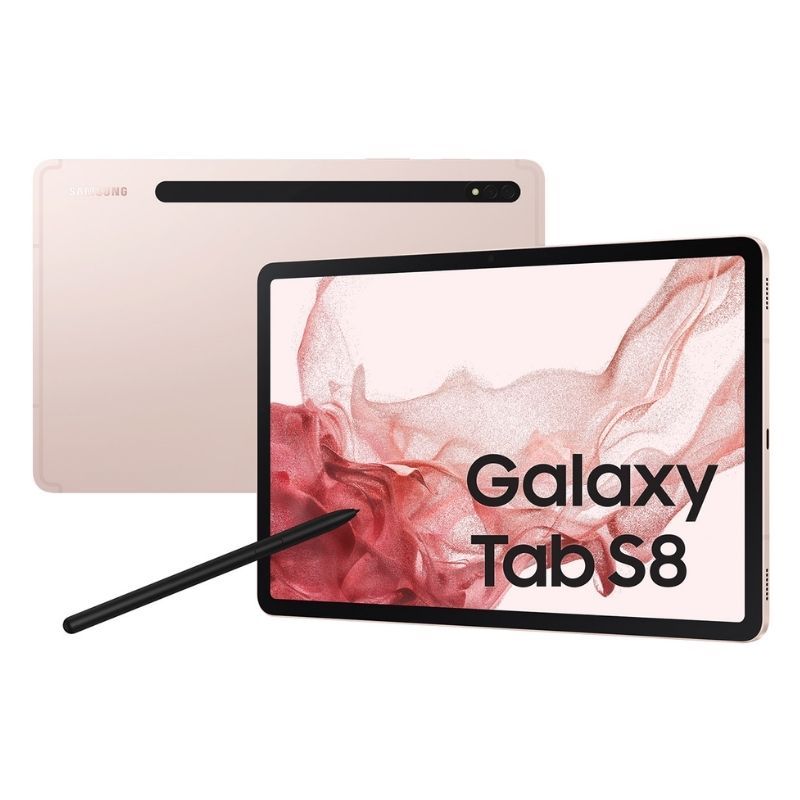
Samsung Galaxy Tab S8
The Samsung Galaxy Tab S8 is the entry flagship tablet for 2022, bringing over top of the line performance in a practical size, alongside S Pen support and several productivity features.
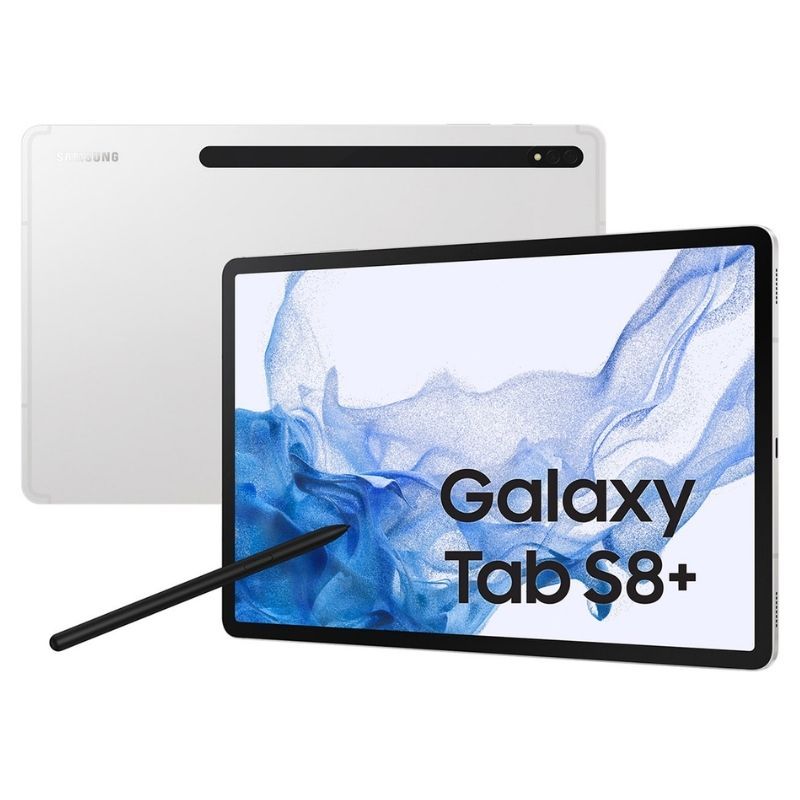
Samsung Galaxy Tab S8 Plus
The Samsung Galaxy Tab S8 Plus is the mid flagship tablet for 2022, bringing over top of the line display and performance in a practical size, alongside S Pen support and several productivity features.
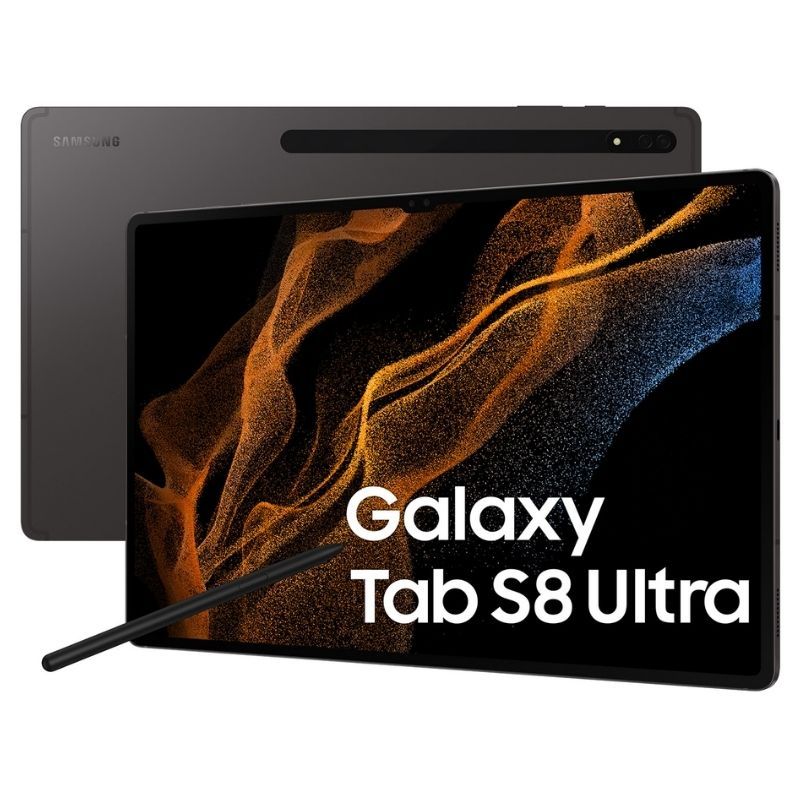
Samsung Galaxy Tab S8 Ultra
The Samsung Galaxy Tab S8 Ultra is the top flagship tablet for 2022, bringing over top of the line display and performance in a humongous size for content creation and consumption, alongside S Pen support and several productivity features.

